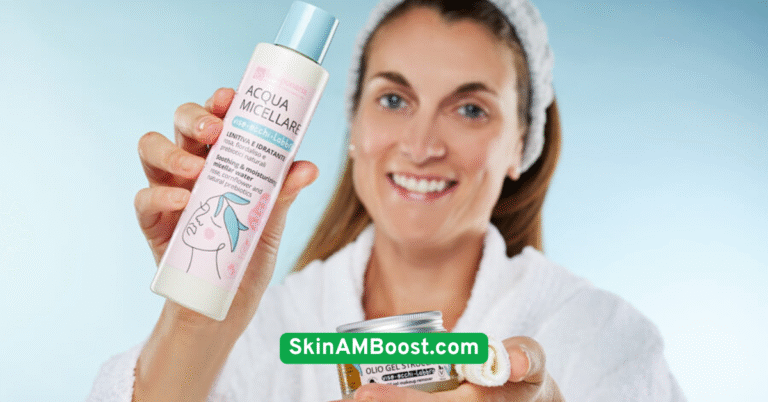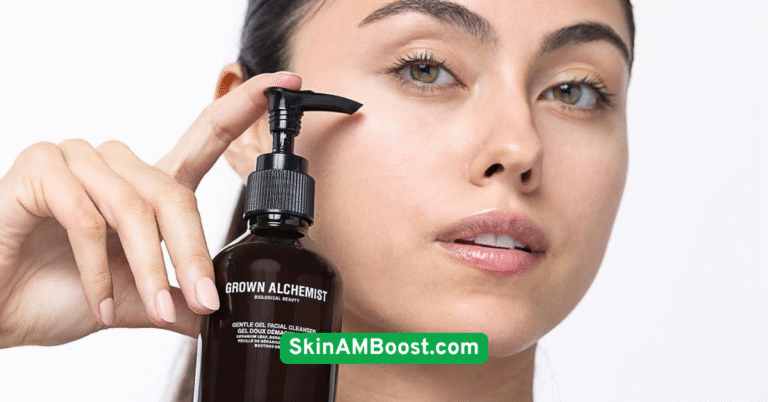30 Hydrating Skincare Tips to Start Fresh

Hydrated skin is happy skin — that’s a skincare fact that never gets old! Did you know that our skin is made up of nearly 64% water? Keeping your skin properly hydrated is essential for maintaining a healthy, glowing complexion. Whether you have dry, oily, or combination skin, hydration plays a key role in preventing dullness, irritation, and premature aging. In this article, I’m excited to share 30 practical and easy hydrating skincare tips that will help you start fresh and maintain a radiant glow all year round. These tips are budget-friendly, easy to incorporate into your daily routine, and suitable for all skin types. So, let’s dive in and hydrate your way to beautiful skin!
1. Drink Plenty of Water Daily
Water is the foundation of hydration for your entire body, including your skin. Drinking at least eight glasses of water a day helps flush out toxins and keeps your skin plump and elastic. When you’re dehydrated, your skin can look dull and feel tight. Aim to carry a reusable water bottle with you as a gentle reminder to sip throughout the day. Adding slices of cucumber or lemon can make it more refreshing and encourage you to drink more.Besides water, hydrating with herbal teas or coconut water also contributes to skin moisture. Remember, drinking water works from the inside out—topical skincare alone can’t do it all!

2. Use a Gentle, Hydrating Cleanser
Choosing the right cleanser is crucial. Harsh cleansers can strip your skin’s natural oils, leaving it dry and irritated. Instead, opt for gentle, hydrating cleansers that remove impurities without disrupting your skin’s moisture barrier. Ingredients like glycerin, ceramides, and aloe vera are fantastic for retaining hydration.Try to avoid cleansers with sulfates or alcohol, which can cause dryness. Using lukewarm water instead of hot water during cleansing also helps prevent moisture loss.

3. Apply Hyaluronic Acid Serum
Hyaluronic acid (HA) is a skincare superstar when it comes to hydration. This powerful humectant attracts and holds onto moisture, delivering intense hydration to your skin. Applying a hyaluronic acid serum after cleansing locks in water, leaving your skin soft and plump.For best results, apply HA serum on slightly damp skin, then follow with a moisturizer to seal in the hydration. Don’t worry—hyaluronic acid works beautifully for all skin types, even oily or acne-prone skin.

4. Opt for Moisturizers with Ceramides
Ceramides are lipid molecules that naturally exist in your skin and help form a protective barrier to lock in moisture. As we age or expose skin to harsh conditions, ceramide levels can decrease, leading to dryness and sensitivity.Choosing moisturizers rich in ceramides can repair your skin’s barrier and improve hydration retention. These products are especially beneficial for dry or sensitive skin types. Look for creams or lotions with ceramides to give your skin that extra hydration boost.

5. Incorporate Aloe Vera Gel in Your Routine
Aloe vera isn’t just a soothing plant—it’s a hydration hero! Known for its calming and moisturizing properties, aloe vera gel helps soothe irritation and replenish moisture.Whether used directly from the plant or in skincare products, aloe vera is lightweight and non-greasy, perfect for all skin types. It also has antioxidants and vitamins that promote skin healing. Try applying aloe vera gel after cleansing or as a refreshing facial mist during the day.

6. Use Facial Mists for Instant Hydration
Facial mists are a quick and easy way to give your skin a hydration boost anytime, anywhere. They can help refresh tired or dry skin, especially in air-conditioned or heated environments that sap moisture.Look for mists infused with hydrating ingredients like rose water, chamomile, or glycerin. A few spritzes throughout the day can make your skin feel revitalized and glowing.

7. Avoid Over-Washing Your Face
Washing your face more than twice a day can strip away natural oils, leading to dryness and irritation. It’s tempting to cleanse frequently, especially after sweating or wearing makeup, but over-washing damages your skin’s protective barrier.Stick to a gentle morning and night routine, and use makeup removers or cleansing balms to remove stubborn makeup without harsh scrubbing. Less is often more when it comes to cleansing.

8. Use Overnight Hydrating Masks
Overnight masks or sleeping packs are hydration powerhouses. These rich formulas work while you sleep, locking in moisture and repairing your skin barrier.Using an overnight mask once or twice a week can deeply nourish dry or dehydrated skin. Look for masks containing hyaluronic acid, glycerin, and natural oils for intense moisture that you wake up loving.

9. Apply Moisturizer on Damp Skin
One skincare hack that really works is applying moisturizer right after cleansing while your skin is still damp. This technique traps the existing water on your skin surface, enhancing hydration.If you wait for your skin to dry completely, the moisturizer has less moisture to lock in, which can reduce its effectiveness. Try this simple step and notice how much softer your skin feels.

10. Limit Hot Water Exposure
Hot water feels relaxing but can strip the skin of its natural oils and moisture, leading to dryness and irritation. Opt for lukewarm water when washing your face or taking showers.Reducing your exposure to hot water protects the skin barrier and helps maintain hydration levels, which is vital for fresh, glowing skin.

11. Use Humidifiers in Dry Environments
If you live in a dry climate or use indoor heating or air conditioning, your skin can lose moisture quickly. A humidifier adds moisture to the air, preventing your skin from drying out.Running a humidifier in your bedroom while you sleep is an easy way to maintain skin hydration and wake up with plumper, more comfortable skin.

12. Avoid Harsh Exfoliants That Strip Moisture
While exfoliation removes dead skin cells and can brighten your face, using harsh scrubs or over-exfoliating can damage the skin barrier and cause moisture loss.Choose gentle chemical exfoliants like lactic acid or fruit enzymes that exfoliate without irritation. Limit exfoliation to 1–2 times per week for optimal hydration.

13. Include Antioxidants in Your Skincare
Antioxidants like vitamin C, E, and green tea protect the skin from environmental damage that can weaken your moisture barrier. They also help brighten and nourish dehydrated skin.Incorporating antioxidant serums or creams into your routine can enhance hydration and keep your skin looking fresh and radiant.

14. Choose Oil-Based Serums for Extra Nourishment
Facial oils are excellent for sealing moisture and nourishing the skin. Oils like jojoba, argan, and rosehip provide essential fatty acids that restore the skin’s natural lipid barrier.Applying a few drops of oil after moisturizer can lock in hydration and add a dewy glow, especially during colder months or for dry skin types.

15. Eat Hydrating Fruits and Vegetables
Hydration isn’t just topical! Eating fruits and veggies with high water content like cucumber, watermelon, oranges, and celery helps hydrate your skin from within.These foods are also rich in vitamins and antioxidants that support skin health. Adding them to your diet can complement your skincare routine beautifully.

16. Use Sunscreen Daily to Prevent Moisture Loss
Sun damage depletes your skin’s moisture and speeds up aging. Using a broad-spectrum sunscreen daily protects your skin from UV rays that cause dryness and premature wrinkles.Choose a sunscreen with hydrating ingredients to provide extra moisture while protecting your skin all day long.

17. Avoid Excessive Alcohol and Caffeine
While a cup of coffee or occasional drink is enjoyable, excessive alcohol and caffeine can dehydrate your body and skin.Limiting intake and balancing with plenty of water helps maintain hydration levels and keeps your skin fresh and plump.

18. Try Facial Oils for Sealing Moisture
Reiterating the power of facial oils, these act as emollients that lock moisture into your skin. Adding oils in your evening routine can restore balance and hydration, especially if your skin feels tight.Start with light oils like squalane if you’re prone to breakouts.

19. Incorporate Niacinamide to Strengthen Skin Barrier
Niacinamide (vitamin B3) is a versatile skincare ingredient that strengthens your skin’s barrier, reduces inflammation, and improves moisture retention.Including niacinamide serums or moisturizers can improve skin texture and hydration over time.

20. Avoid Long, Hot Showers
Taking long, hot showers dries out your skin by stripping away natural oils. Limiting shower time to 5-10 minutes and using lukewarm water helps keep your skin hydrated.Pat your skin dry gently with a towel to avoid irritation.

21. Use Gentle Toners with Hydrating Ingredients
Toners with hydrating ingredients like rose water, glycerin, or chamomile help restore pH balance and add an extra layer of moisture.Avoid alcohol-based toners that can be drying or irritating.

22. Limit Use of Alcohol-Based Products
Alcohols in skincare (like denatured alcohol) can dehydrate skin by breaking down the natural lipid barrier.Check product labels and choose formulations without drying alcohols for better moisture balance.

23. Exfoliate Gently to Remove Dead Skin Cells
Proper exfoliation encourages cell turnover and improves moisturizer absorption.Use gentle exfoliants and don’t overdo it to maintain hydration and avoid sensitivity.

24. Stay Away from Fragrance-Heavy Products
Fragrances can irritate sensitive skin and disrupt the skin barrier, leading to dryness.Opt for fragrance-free or naturally scented products to minimize irritation.

25. Use Overnight Sleeping Packs
Sleeping packs provide intensive hydration and skin repair overnight.They form a protective barrier preventing moisture loss and deliver nourishing ingredients while you sleep.

26. Drink Herbal Teas for Hydration and Detox
Herbal teas like chamomile or peppermint hydrate and provide antioxidants that support skin health.Drinking herbal teas regularly can complement your hydration efforts.

27. Keep Your Skin Cool to Avoid Excess Oil Production
Overheating can trigger oil production and dehydration simultaneously.Staying cool and avoiding excessive heat protects your skin’s hydration and balance.

28. Get Enough Sleep for Skin Repair
Sleep is vital for skin hydration and repair.Aim for 7-9 hours nightly to support your skin’s natural renewal and moisture retention.

29. Protect Skin from Pollution
Pollution damages the skin barrier, leading to moisture loss and irritation.Use antioxidant-rich products and cleanse thoroughly to minimize environmental damage.

30. Maintain a Balanced Diet Rich in Omega-3s
Omega-3 fatty acids support skin hydration from within by strengthening the lipid barrier.Include foods like salmon, flaxseed, and walnuts to nourish your skin deeply.

Conclusion
Hydrating your skin is a holistic journey that involves simple daily habits, the right products, and mindful lifestyle choices. By incorporating these 30 hydrating skincare tips, you’ll give your skin the boost it needs to stay fresh, radiant, and healthy — no matter your skin type. Remember, consistency is key! Start with a few tips that suit your routine, and gradually build a hydration-focused regimen that feels natural and sustainable. Your skin will thank you with a beautiful glow that lasts all year long. So, why wait? Begin hydrating your skin today and step into a fresher, more luminous you!





